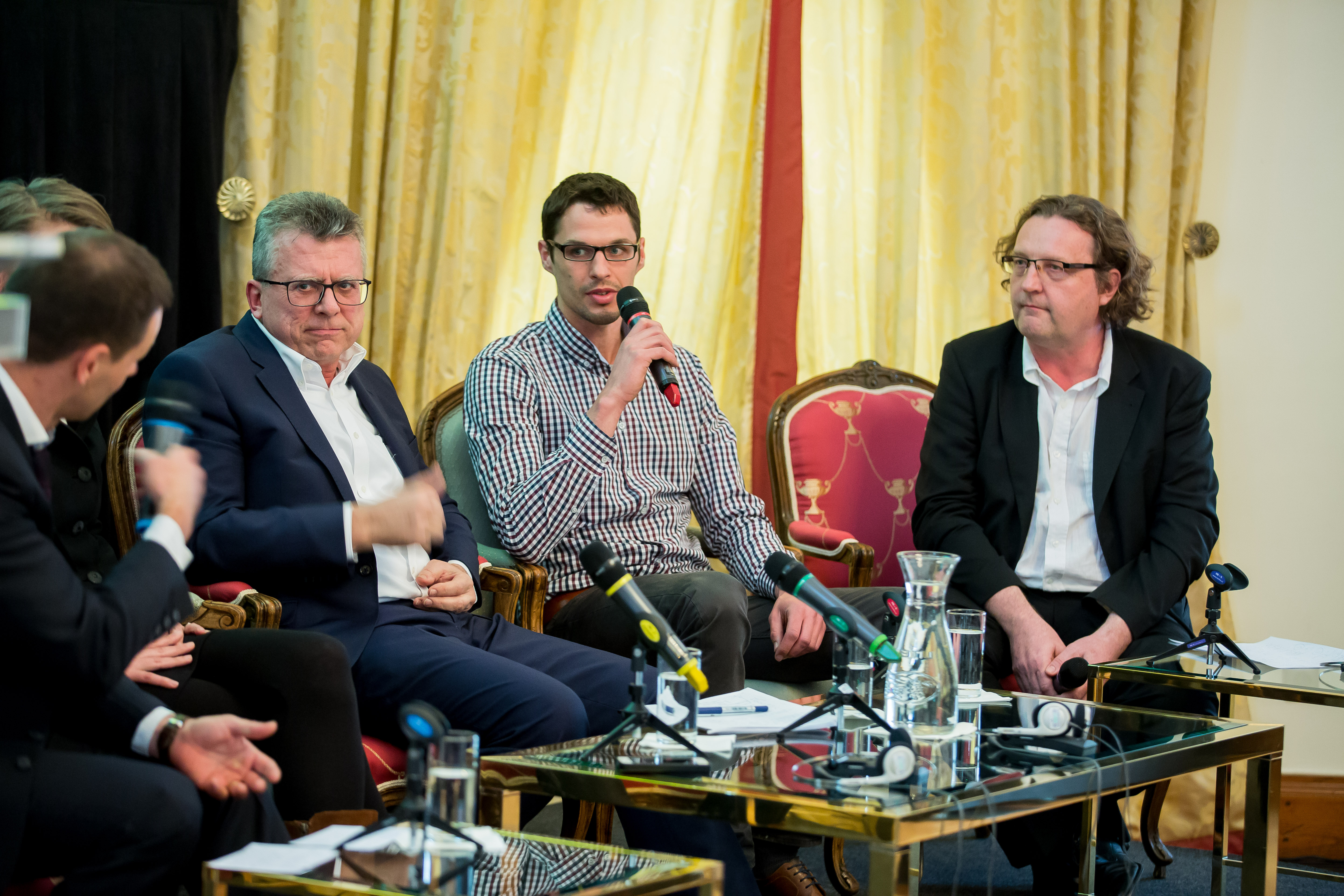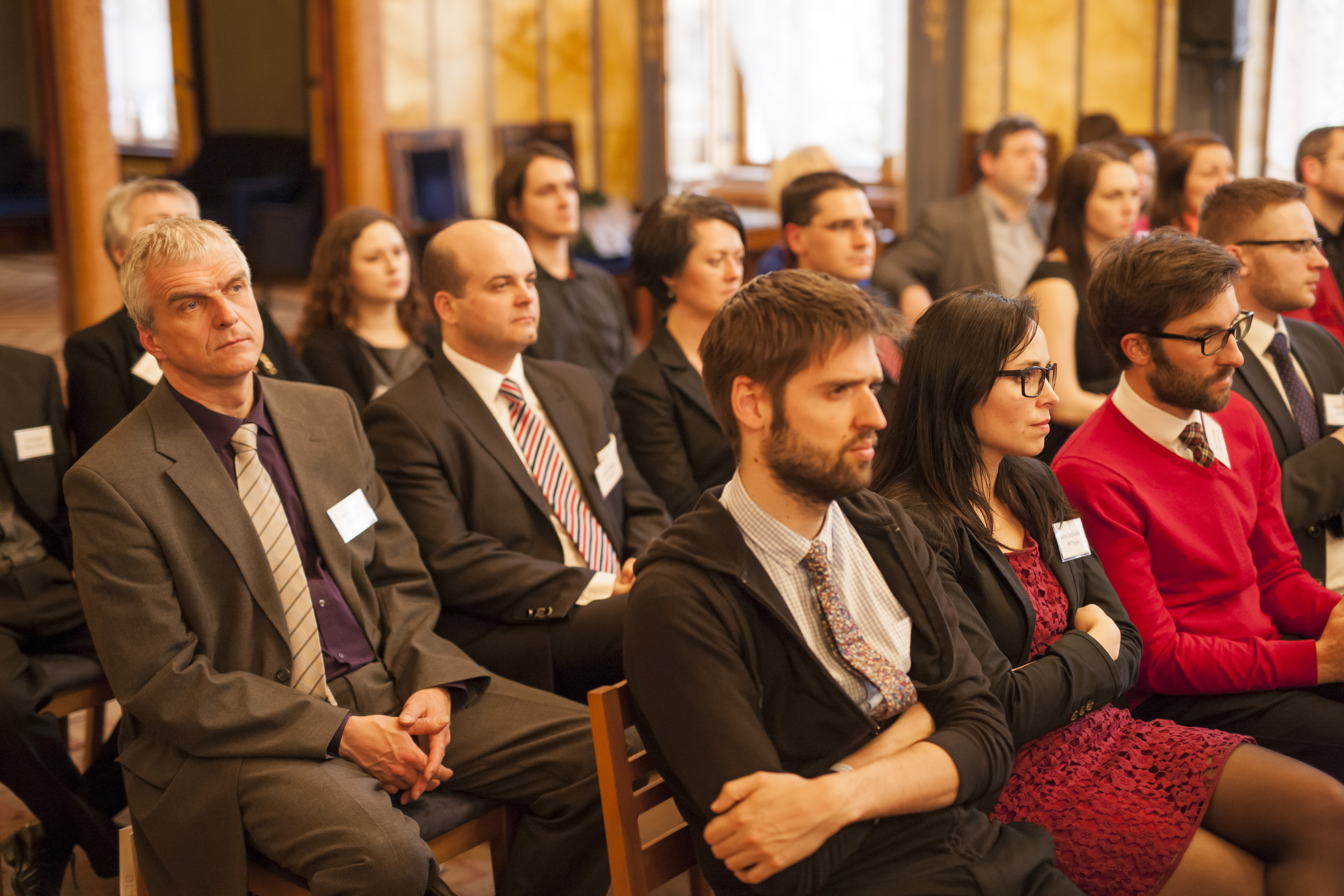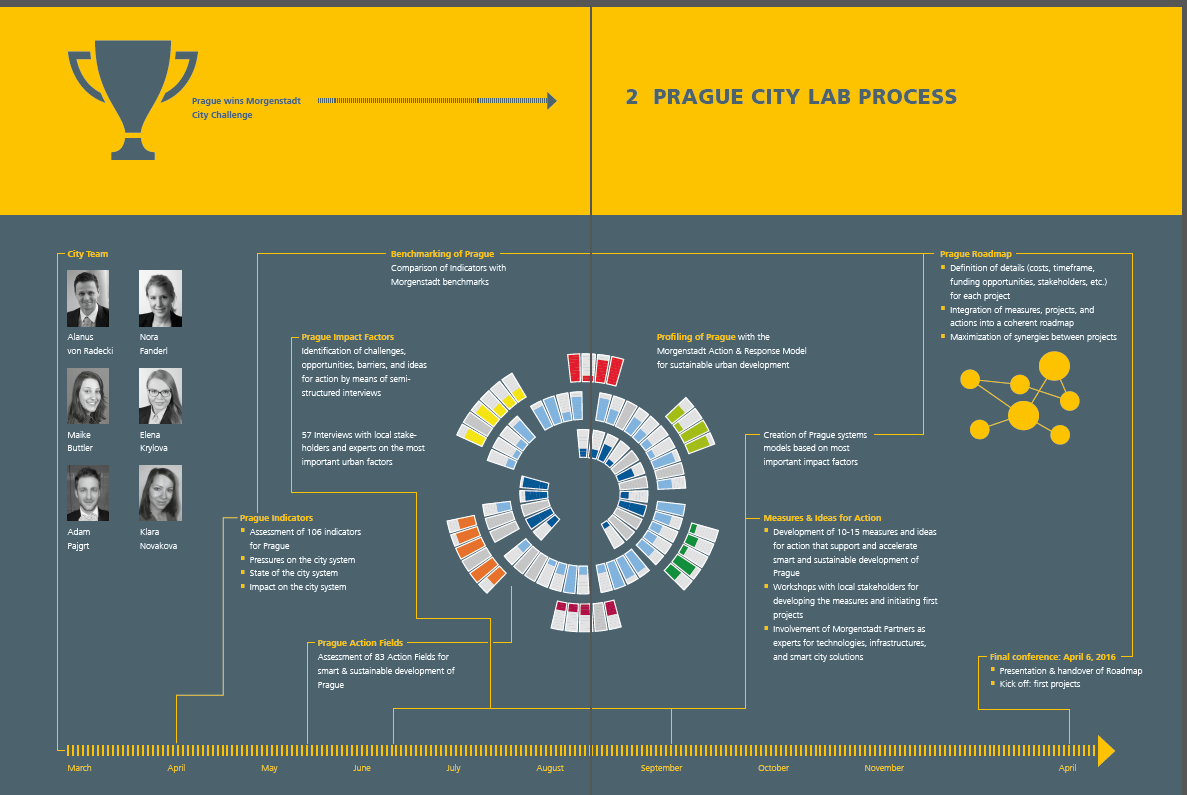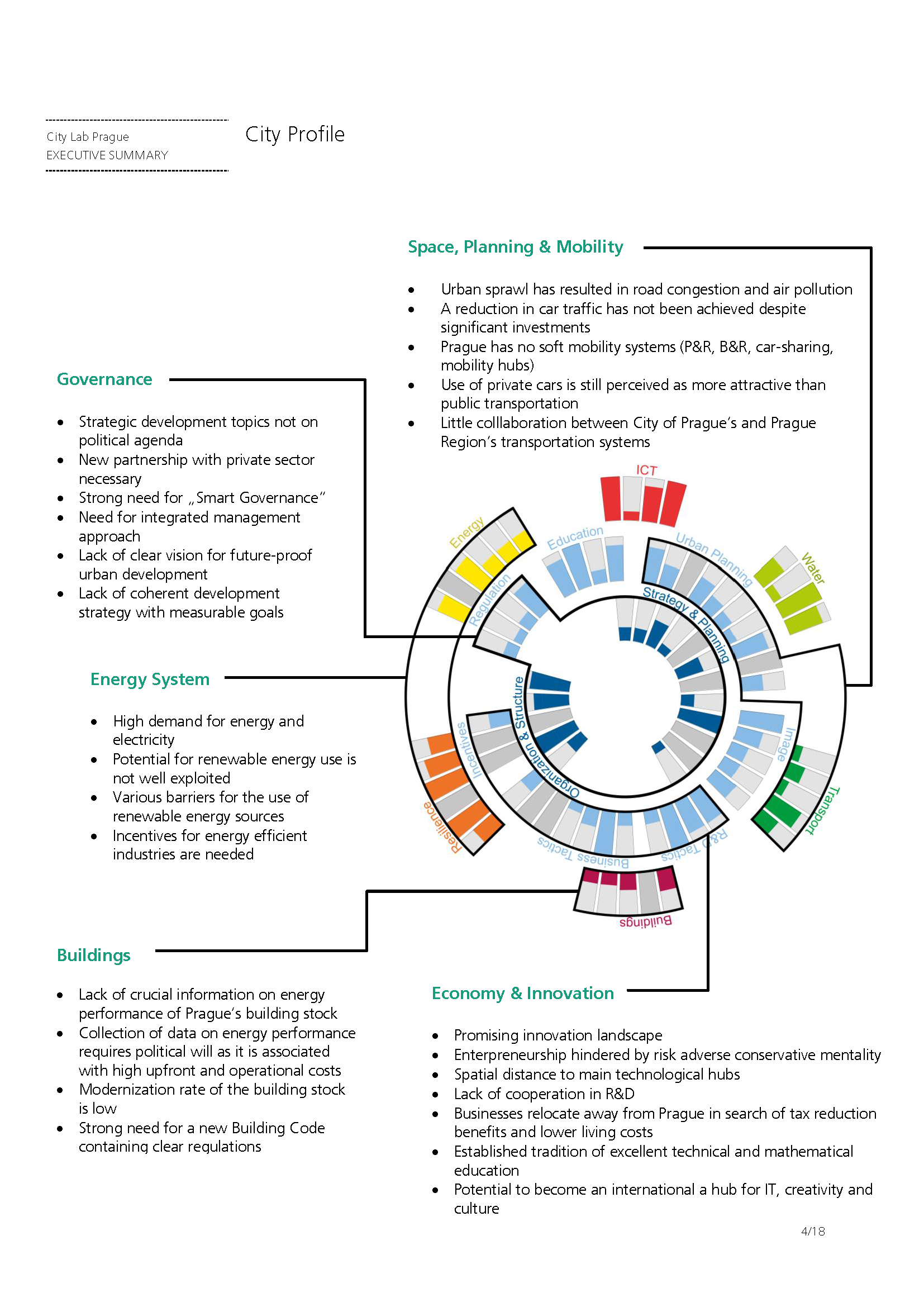
City Lab Prague

What is a CityLab?
»CityLab« is a concrete form of cooperation between Fraunhofer researchers and partner cities. CityLab includes an in-depth analysis of the city based on the Fraunhofer Morgenstadt system approach. Multiple CityLabs have already been implemented in several cities, both in Germany and abroad. While most urban studies are based on macroeconomic data such as population growth, economic growth and real-estate prices, the CityLab approach is based on a different approach.
Prague: An Overview
Today, Prague is standing at a crossroad. The city has the potential for a bright and strong future, but it has not yet defined the strategic pathways towards a successful transition. Moreover, there is no clear vision in place for the future and Prague has not quantified goals for development and progress. However, the has recently updated the strategic plan and it is in the middle of the process of developing the new Masterplan (Metropolitan Plan).
This, combined with the city’s economic strength and its rich history and attractiveness for people worldwide, creates a large potential for focused, smart, and sustainable urban development. This was the reason why Prague was selected as the first winner of the Morgenstadt City Challenge in June 2014.
City Lab process
The in-depth analysis of Prague was carried out based on the Morgenstadt assessment framework for sustainable urban development. This framework is structured into three main levels of analysis, which in sum are designed to understand the current sustainability performance of cities and result in coherent strategies and an integrated roadmap for development. A mixture of quantitative benchmarks and qualitative data analyses certifies that an objective performance profile of Prague can be generated, while at the same time respecting the individual factors of the city that make a direct comparison with other cities difficult. This leads towards an individual strategy for Prague.


Possible innovation projects
Project: Innovation District
The city of Prague needs to create an innovation ecosystem to foster local innovation and to attract international business and skilled workforce. The concept of the innovation district intends to bring business and research together in a specially designed space to accelerate the development of new and innovative products and services from an idea stage to a market roll-out.
Project: Smart City Think Tank
The research landscape of Prague is scattered and collaboration with businesses is not managed in a proactive way. A Think Tank that connects local universities, local (and non-local) companies, as well as the city administration has the potential to transform existing innovation potential into tangible projects that can improve the economic basis of Prague and support a smart city development.
Project: Multimodal Transportation App
The multimodal transportation app helps reducing congestion and traffic within the city and incentivizes the public to use alternative transportation modes instead of motorized private transportation. The app simplifies the use of public transport and promotes more sustainable mobility behaviour through a targeted pricing system, combined with nudging and gamification elements.
City lab process

Conclusion
The Morgenstadt City Lab generated an in-depth analysis of the City of Prague. It shows strengths and weaknesses of the current development process of Prague and suggests an integrated roadmap for pushing Prague into the league of leading cities in Europe. This roadmap builds on measures and projects across three main levels of a sustainable urban development which have close interrelations: the governance level, the socio-economic level and the technology and infrastructure level.
At the core of the analysis there is the insight that Prague needs to put an innovation-based management approach to work within the public administration and at the leadership level of the city. This approach will serve to facilitate cross-departmental collaboration and investments, to organise collaboration with the private sector and to spur a maximum uptake of data-driven and ICT-based solutions to deliver public services in an efficient way. Starting from here, Prague has the potential to become a leading city in Europe with regards to creativity, culture and a digital economy.
Further information for download
Morgenstadt City Lab Prag
For more information please read here the executive summary.
